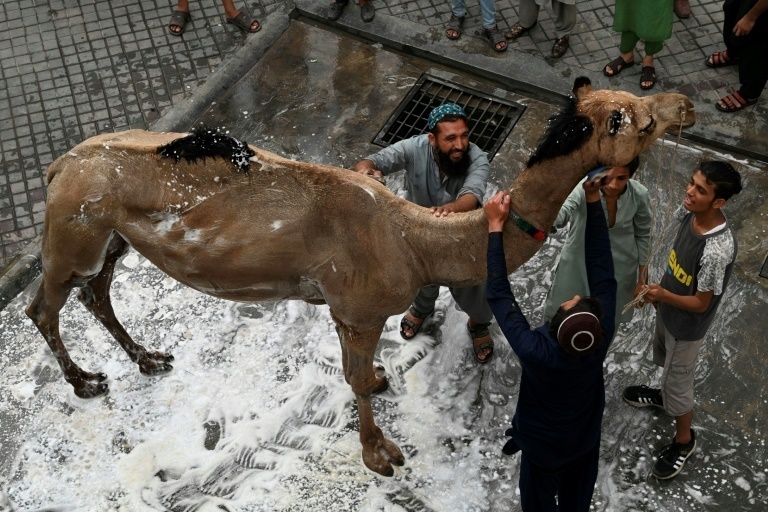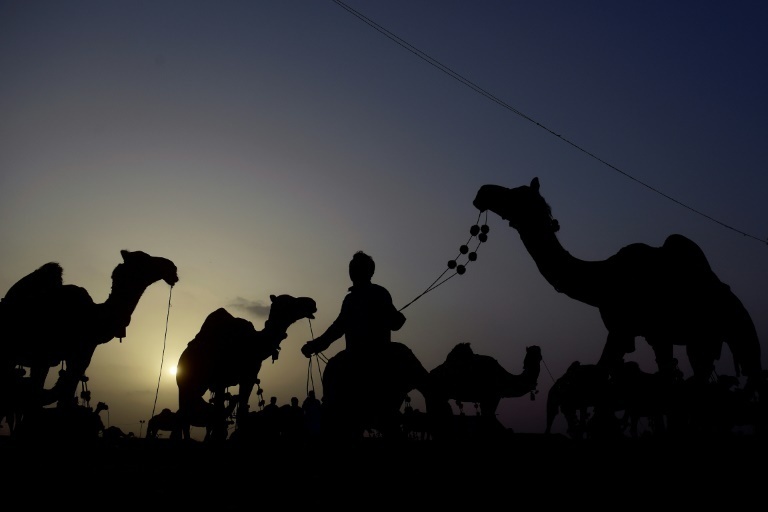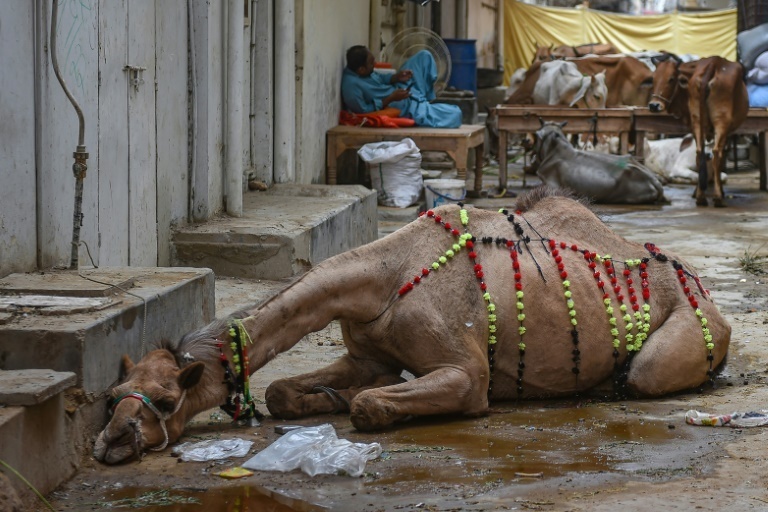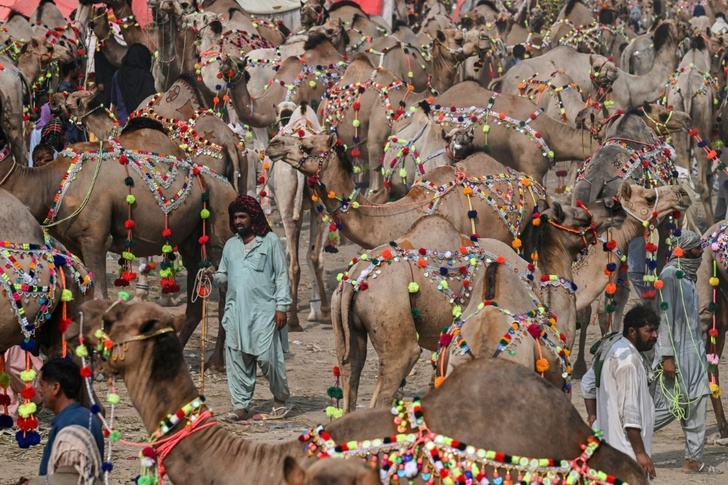Teenager Amanullah Khan teeters on his tiptoes, daubing towering camels with festive henna patterns to entice Eid al-Adha customers at a market near the Pakistan capital.
Hundreds of farmers have camped at livestock markets between Islamabad and its twin city Rawalpindi for two weeks, hoping to sell animals ahead of the annual holy festival starting Thursday in Pakistan.
But with rampant inflation -- reaching a record 38 percent in May -- markets are attracting smaller crowds.
Khan's cousin Zakaria brought 18 camels to market after good profits last year but has sold only one so far.

During the festival, Muslims around the world will slaughter an animal -- a goat, sheep, bull or camel -- keeping a third for themselves before giving a third to friends and relatives, and a third to charity.
The ritual commemorates the readiness of Ibrahim -- Abraham in the Christian and Jewish faiths -- to sacrifice his son to show obedience to Allah.
The centuries-old festival is guided by tradition, but this year many middle-class Pakistanis will not be able to perform a sacrifice.

Another customer, Zerak Ali, had come to enquire about the price of a camel, which can cost up to one million rupees ($3,500).
"It is worth 700,000 for you," Zakaria barters. But 56-year-old shopkeeper Ali leaves, leading his two grandsons towards the enclosure housing cheaper bulls.
Camel sacrifice is not common in Pakistan, but some wealthier buyers prefer the animal because 11 families can share its meat, according to Islamic rules.
More than 250 camels have been brought to the Islamabad market, along with thousands of bulls, cows, goats and sheep.

Eating into Zakaria's profits are market taxes, rising fodder and truck rental prices, as well as staff wages.
"I will lose millions of rupees this year," he glumly predicts.
Bakht Zaman, a farmer from Mardan district in Pakistan's northwest, brought 10 camels to market and has so far sold only one for 500,000 rupees.
"The value of the Pakistani rupee has fallen," says buyer Haq Nawaz. "Who will buy such expensive animals?"
sjd/dva/jts/qan/cwl
© Agence France-Presse
Your content is great. However, if any of the content contained herein violates any rights of yours, including those of copyright, please contact us immediately by e-mail at media[@]kissrpr.com.
Source: Story.KISSPR.com

